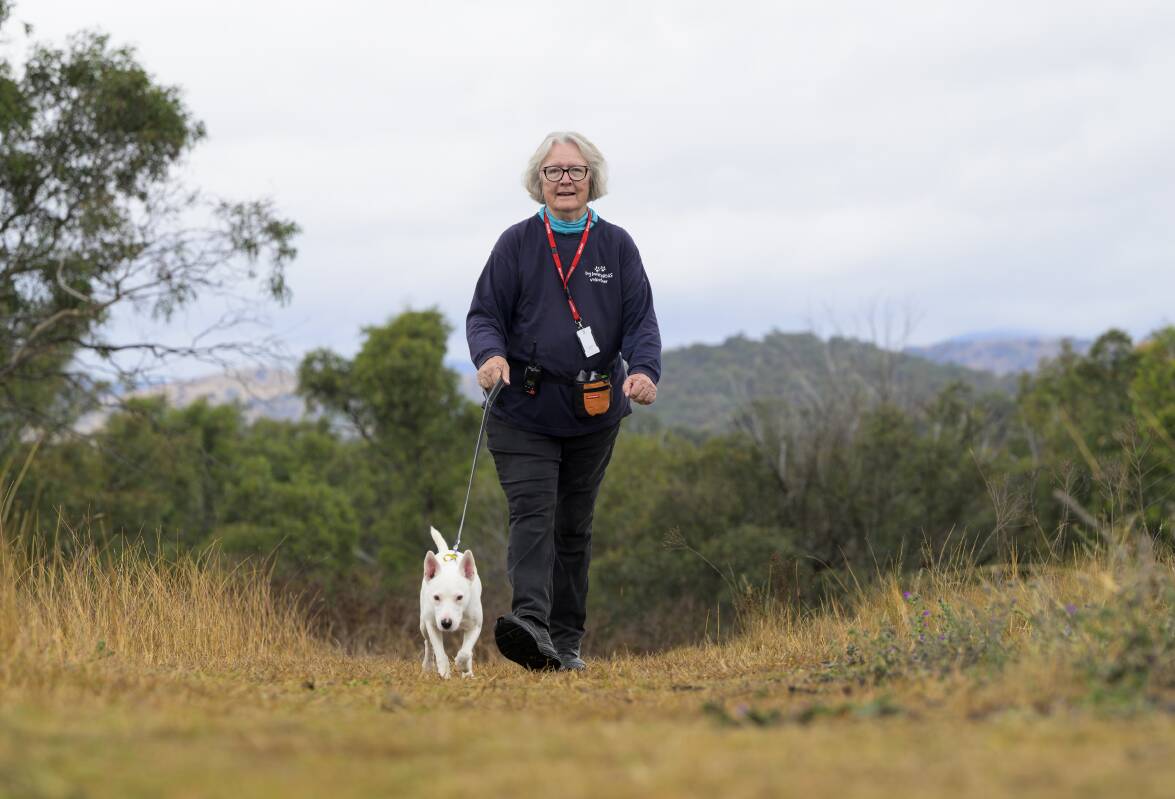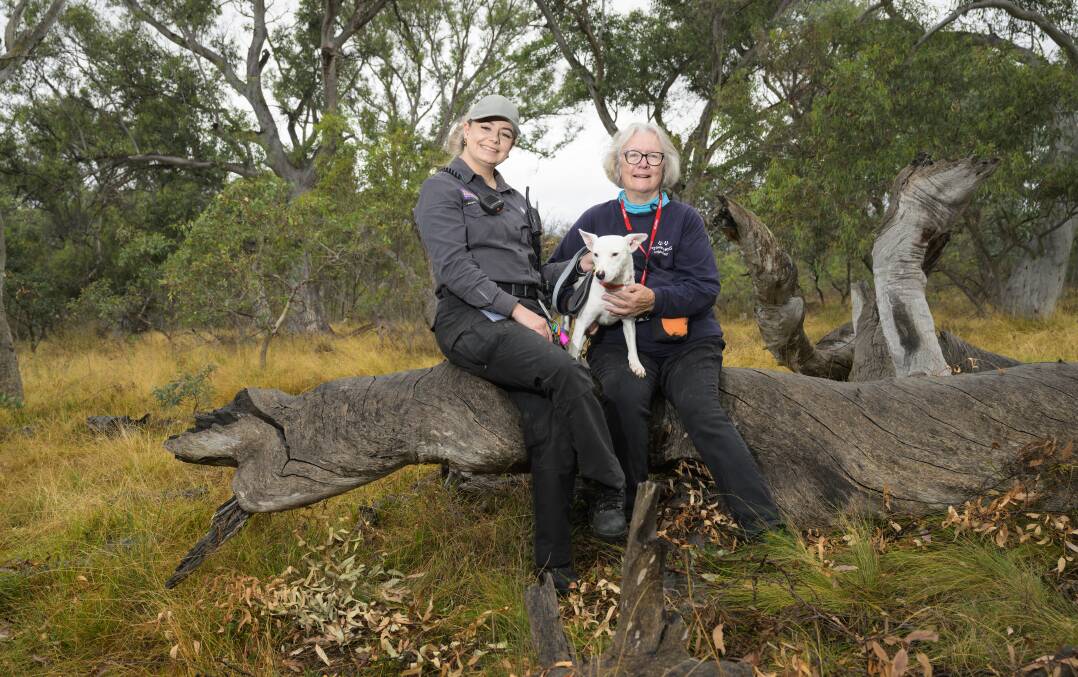After a fulfilling career as a diplomat, including overseas postings, the last as the Australian Ambassador to Nepal, Di Johnstone in retirement fostered her other great passion - animal welfare.
The 73-year-old Canberra woman has just marked 20 years as a volunteer at Domestic Animal Services, walking thousands of dogs over those two decades.
But she's also worked tirelessly from those early days to create a database of volunteers who can regularly walk the dogs, as well as improve animal welfare standards at the pound, on Mugga Lane.
All with the goal of finding every dog their forever home.
Ms Johnstone said two decades ago, she went looking for something purposeful in her retirement.
"I had always been passionate about animal welfare and I decided I wanted to do something useful and worthwhile for animals," she said.
"I was always passionate about dogs and thought a logical thing to do would be to offer my services to a shelter to walk the dogs."

Ms Johnstone initially approached the RSPCA, but there was a bit of a waiting period to join the program back then.
"I thought, 'I'm ready to walk dogs now' and they said, 'Why don't you go over to DAS and see what they say'.
"So I went to DAS and spoke to the folks at reception and said 'I'm here to walk the dogs' and they basically gave me a collar and a lead and said, 'Go for it'."
She was likely the first or one of the first volunteers to start walking the dogs and worked to attract more and more because there was an obvious need.

"That's what struck me at the start - there were just so many dogs and they all needed exercise," she said.
"I came as often as I could, sometimes several times a week and walked as many dogs as I could, but it was clear this was not the solution. One person was not the answer to this problem. We needed to get up a volunteer program.
"So I reached out to friends in the doggie community. I encouraged them to come. Also did a bit of media. And talked to politicians as well about getting up a program."
Ms Johnstone credited early DAS managers including Drew McLean and Eva Cawthorne for developing the volunteer program and for then chief minister Jon Stanhope for approving a volunteer program and other developments such as an on-site kennel master and volunteer coordinator in 2010.

Not only that, Ms Johnstone also started an internal Dog Lovers of DAS newsletter and kept supporters updated with all the developments over 38 editions.
Ms Johnstone still walks dogs once a week at DAS, walking three dogs individually in her shift.
There are now almost 100 active volunteers at DAS, who take the dogs out of the kennels and walk them on nearby trails or watch them play in the yards. Each volunteer logs observations about their time with the dog, so the details can help them be matched with the most suitable owner.
"The program as gone from strength to strength. It's now a very successful volunteer program," she said.

Ms Johnstone said she hoped more young people would consider becoming a volunteer at DAS.
"What do I get out of the volunteering? I get the joy of taking these dogs for a walk every week on this lovely trail and seeing them enjoy the experience," she said.







